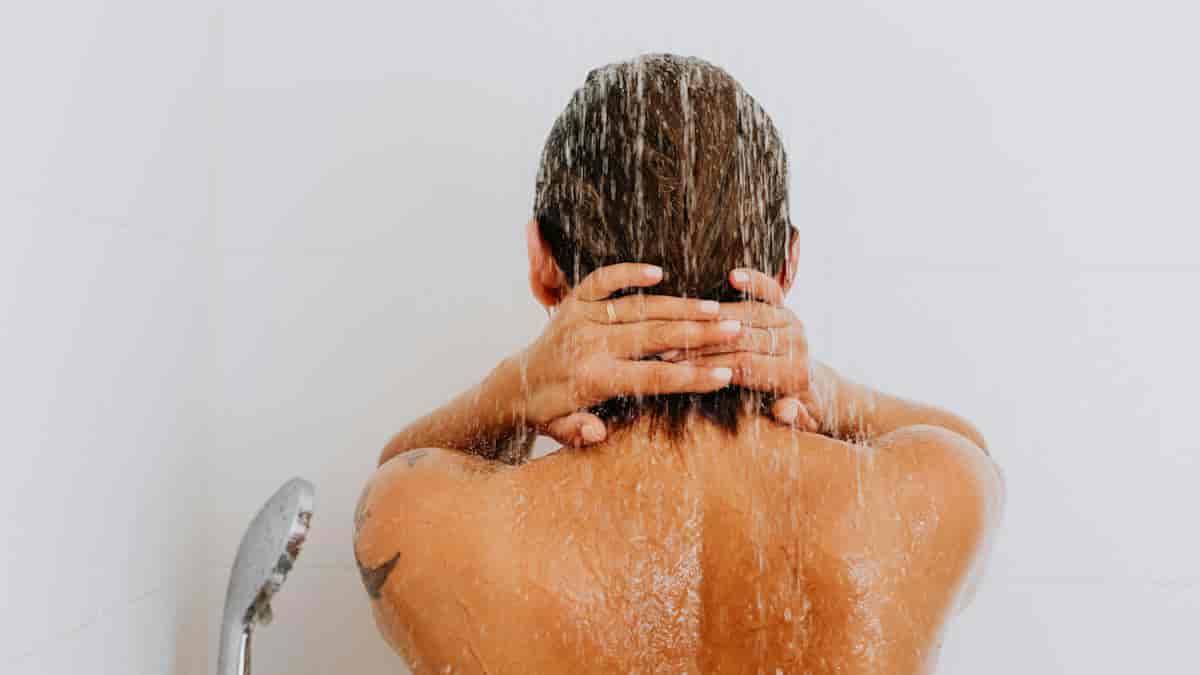Here is your complete guide to soft water vs hard water shower.
Introduction to Soft Water vs Hard Water Shower
Soft water and hard water are two types of water that have different properties and effects on our daily lives, especially when it comes to showering. In this article, we will explore the differences between soft water vs hard water shower, their advantages and disadvantages, and how to choose the right shower setup for your needs.
Differences between Soft Water and Hard Water
Definition
Soft water is lower in minerals than hard water but has a higher sodium content, which can make it taste salty1. Hard water, on the other hand, contains higher levels of minerals like calcium, iron, and magnesium1.
Effects on Skin and Hair
Soft water is gentler on skin and hair, as it doesn’t leave soap scum or spots on dishes and glasses after washing1. Hard water, however, can cause dry skin and hair, as well as buildup on shower screens and other surfaces1.
Measuring Water Hardness
Water hardness is measured by the concentration of minerals like calcium carbonate, given in parts per million (ppm) or Clark’s degrees (˚Clark)1. If water has 100ppm or higher, it’s officially classified as hard water3.
Mineral Content in Soft and Hard Water
| Water Type | Calcium (ppm) | Magnesium (ppm) |
|---|---|---|
| Soft Water | 10 | 5 |
| Hard Water | 150 | 80 |
Effects on Skin and Hair
The battle between soft water vs hard water shower becomes most apparent when we assess their impact on our skin and hair.
- Soft Water Benefits:
- Skin feels softer and more hydrated
- Hair maintains natural oils, resulting in shine
- Ideal for those with sensitive skin conditions
- Hard Water Challenges:
- Strips skin of natural oils, causing dryness
- Hair becomes brittle and prone to breakage
- Exacerbates skin conditions like eczema
Effects on Skin and Hair
| Aspect | Soft Water Effect | Hard Water Effect |
|---|---|---|
| Skin Condition | Hydrated and smooth | Dry and prone to irritation |
| Hair Appearance | Shiny and manageable | Dull and susceptible to breakage |
| Sensitivity Impact | Gentle on sensitive skin | Aggravates skin conditions like eczema |
Impact on Shower Equipment
Your shower equipment isn’t immune to the effects of water quality. Let’s explore how soft water vs hard water influences your shower space.
- Scale Buildup in Hard Water:
- Accumulation of mineral deposits on showerheads and faucets
- Reduces water flow and efficiency
- Requires regular cleaning and maintenance
- Corrosion Risks in Soft Water:
- Soft water’s low mineral content may lead to corrosion
- Requires non-corrosive materials for shower equipment
- Periodic checks for any signs of wear and tear
Pros and Cons of Soft Water and Hard Water Showers
Soft Water Showers
Advantages:
- Gentler on skin and hair
- Easier to produce a foamy lather2
- Less buildup on shower screens and other surfaces1
Disadvantages:
- Higher sodium content can make water taste salty1
- May require a water softener for optimal performance2
Hard Water Showers
Advantages:
Disadvantages:
Soft Water vs Hard Water Showerheads
Soft Water Showerheads
Hard Water Showerheads
Soft Water vs Hard Water Shower Filters
Soft Water Shower Filters
- Remove excess sodium and other impurities4
- Can be used with a water softener for optimal performance2
Hard Water Shower Filters
Cost Considerations
Financial considerations often sway decisions:
- Cost of Water Softening Systems:
- Initial investment for softeners
- Potential long-term savings on skincare and haircare products
- Evaluate cost-effectiveness based on your water type and consumption
FAQs about Soft Water vs Hard Water Shower
What is the difference between soft water and hard water?
Soft water has lower mineral content and higher sodium content, while hard water has higher mineral content1.
How does water hardness affect showering?
Hard water can cause dry skin and hair, as well as buildup on shower screens and other surfaces1.
What are the advantages of soft water showers?
Gentler on skin and hair, easier to produce a foamy lather, and less buildup on shower screens and other surfaces2.
What are the disadvantages of soft water showers?
Higher sodium content can make water taste salty, and may require a water softener for optimal performance2.
What are the advantages of hard water showers?
Natural minerals can be beneficial for skin and hair, and no need for a water softener2.
What are the disadvantages of hard water showers?
Can cause dry skin and hair, and buildup on shower screens and other surfaces1.
Read Also: Summer Pink Nails.
What are the best showerheads for soft water?
Suitable for low-mineral water and can be used with a water softener for optimal performance.
Read Also: Fall Ombre Nails.
What are the best showerheads for hard water?
Suitable for high-mineral water and no need for a water softener2.
Read Also: Natural Brown Makeup.
What are the best shower filters for soft water?
Remove excess sodium and other impurities and can be used with a water softener for optimal performance.
Read Also: Makeup Pink Hair Hacks.
What are the best shower filters for hard water?
Remove excess minerals and impurities and no need for a water softener2.
Read Also: Butt Blasting.
Conclusion
In conclusion, the choice between a soft water and hard water shower depends on your personal preferences and needs. Soft water showers are gentler on skin and hair, while hard water showers can provide natural minerals for skin and hair. When choosing a shower setup, consider factors such as water hardness, showerhead type, and shower filter type to ensure the best experience for your needs.
Read Also: Pink and Yellow Eye Makeup.

